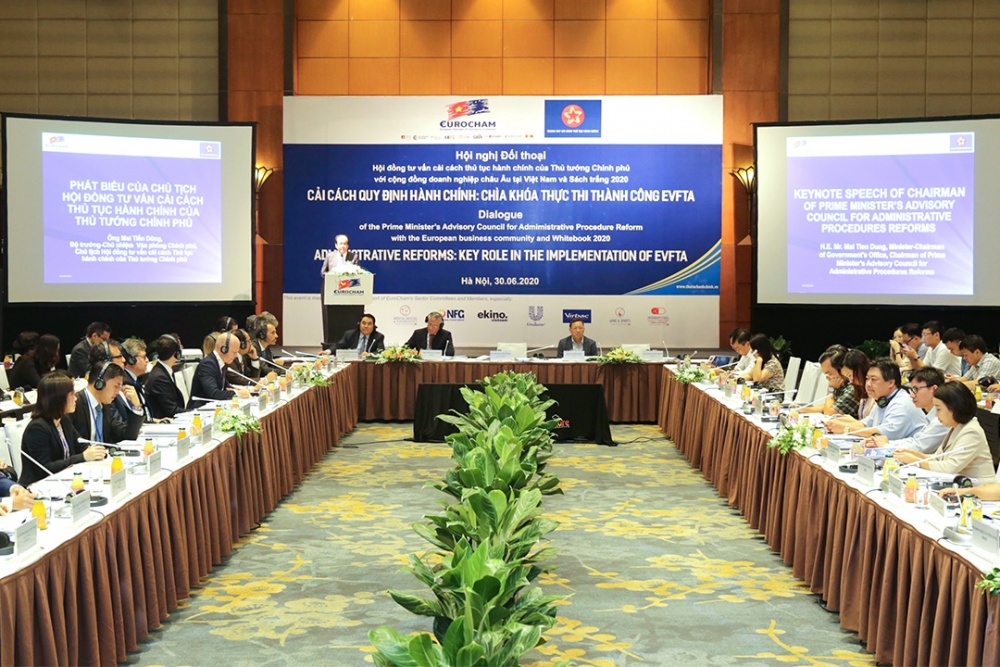Agricultures
EVFTA will officially take effect from August 1, 2020
After a decade of unremitting efforts, Vietnam and the European Union (EU) have completed the process of ratifying the Free Trade Agreement (EVFTA) and this Agreement will officially take effect on August 1, 2020.

Overview of the Dialogue with European businesses in Vietnam. (Photo: G.T)
This is a new milestone on the journey of reform and integration of Vietnam’s economy. With the ratification of this Agreement, the European Union, a fastidious market with the highest standards in the world, officially acknowledged the efforts to reform, build a market economy institution and develop. Vietnam’s sustainability and determination to strengthen cooperation with Vietnam.
The negotiation, conclusion and ratification of EVFTA – the most ambitious free trade agreement ever undertaken by the EU with a developing country – have gone through a long journey with tireless efforts. of many parties.
If counted from the time when Vietnam and the EU agreed to start EVFTA negotiations in October 2010, this would last nearly 10 years. This is a long process, demonstrating Vietnam’s determination to promote the deep integration into the world economy in the context of complicated and unpredictable political and economic situation.
The implementation of EVFTA in the context of unpredictable fluctuations in economic – trade and market trends is expected to open up many strategic cooperation opportunities to promote trade and industry relations. linking investment in depth, practical and efficiency, towards sustainable development of Vietnam – EU in the coming time.
The EU is a large-capacity market with unity in diversity and plenty of room for growth; At the same time, the structure of goods import and export between Vietnam and the EU is complementary rather than competitive. Successful penetration of the EU market means that Vietnam has the opportunity to expand cooperation with 27 member countries at the same time, contributing to solving the output problem of market expansion and diversification. going deep into the global value chain.
Once the Agreement comes into effect, the EU will eliminate import duties on about 85.6% of tariff lines, equivalent to 70.3% of Vietnam’s exports to the EU. After 7 years from the date of entry into force of the Agreement, the EU will eliminate import duties on 99.2% of tariff lines, equivalent to 99.7% of Vietnam’s exports. For the remaining 0.3% of exports, the EU commits to giving Vietnam tariff quotas with import duties within the quota of 0%.
Thus, it can be said that nearly 100% of Vietnam’s exports to the EU will be eliminated import tax after a short journey. So far, this is the highest level of commitment a partner gives us in the signed FTAs. This benefit is especially meaningful when the EU is continuously one of the two largest export markets of our country today.
For EU exports, Vietnam committed to eliminate tariffs as soon as the Agreement comes into effect with 48.5% of tariff lines (accounting for 64.5% of import turnover). Then, after 7 years, 91.8% of tariff lines equivalent to 97.1% of EU exports were removed from Vietnam by import taxes.
After 10 years, the tariff elimination rate is about 98.3% of the tariff lines (accounting for 99.8% of import turnover). For about 1.7% of the remaining EU tariff lines, we apply the roadmap to eliminate import duties longer than 10 years or apply tariff quotas in accordance with WTO commitments.
Source: MOIT
